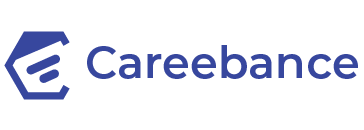The modern hiring landscape faces a critical paradox: while organizations seek innovative talent to drive growth, their recruitment practices often create artificial barriers that exclude qualified candidates based on rigid industry experience requirements. This analysis examines how this approach affects both businesses and job seekers, offering data-driven insights into creating more effective hiring strategies that prioritize transferable skills over industry-specific tenure.
The Hidden Tax of Industry-Specific HiringWhen a technology firm demands eight years of SaaS experience, or a healthcare company requires a decade of medical device marketing expertise, they’re not just setting hiring criteria – they’re implementing a hidden tax on their organization’s potential. This tax manifests in extended hiring timelines, increased compensation costs, and most critically, in the opportunity cost of missed innovation potential.
Recent market analysis reveals that companies with strict industry experience requirements take an average of 30% longer to fill critical positions compared to organizations with more flexible hiring criteria. This extended vacancy period translates directly to delayed project timelines, missed market opportunities, and increased strain on existing team members. The financial impact becomes particularly acute when considering that each month a key position remains unfilled and can cost organizations upwards of $50,000 in lost productivity and opportunity costs.
The Innovation Imperative
Modern business success increasingly depends on an organization’s ability to innovate and adapt to rapidly changing market conditions. Traditional industry experience, while valuable, often comes with embedded assumptions and operational blindspots that can actually hinder innovation. Companies that have successfully disrupted their markets often did so by bringing in perspectives from adjacent or entirely different industries.
Consider how Netflix transformed the entertainment industry by applying technology-sector thinking to content delivery, or how Apple revolutionized retail by bringing hospitality-industry customer service principles to technology sales. These transformations weren’t driven by deep industry experience but by the ability to recognize and apply successful principles across sector boundaries.
The Real Value Proposition
The true measure of professional capability lies not in years spent within a specific industry but in the demonstrated ability to drive results through transferable skills and adaptable thinking. High-performing professionals develop core competencies that transcend industry boundaries – strategic thinking, stakeholder management, project execution, and innovation capability. These skills, combined with fresh perspective and cross-industry insights, often prove more valuable than deep but narrow industry experience.
Risk and Reality: Understanding the Current Paradigm
The preference for industry-specific experience often stems from risk-averse hiring practices rather than strategic necessity. Organizations justify these requirements as risk mitigation, but this approach often creates larger, less visible risks: stagnation in thinking, missed innovation opportunities, and artificial limitations on talent pools.
Moreover, the assumption that industry experience guarantees success is fundamentally flawed. Research shows that past performance in the same industry correlates less strongly with future success than core competencies like learning agility, strategic thinking, and adaptability. Organizations focused solely on industry experience often overlook these critical predictors of long-term value.
The Technology Factor
Modern business technology has dramatically reduced the learning curve for industry-specific knowledge. Digital platforms, data analytics tools, and artificial intelligence have made it easier than ever for talented professionals to quickly understand and adapt to new industry contexts. The traditional argument for extensive industry experience becomes less compelling when considering how technology has transformed knowledge acquisition and application.
Competitive Advantage Through Diverse Thinking
Organizations that break free from industry-experience requirements often gain significant competitive advantages. They benefit from cross-pollination of ideas, diverse problem-solving approaches, and increased innovation potential. These companies typically see improvements in several key areas:
Market Responsiveness: Teams with diverse industry backgrounds tend to identify and respond to market changes more quickly, drawing on broader experience to recognize patterns and opportunities.
Innovation Capability: Cross-industry expertise often leads to breakthrough innovations by combining best practices from different sectors in novel ways.
Problem Solving: Diverse industry experience brings multiple frameworks for approaching challenges, resulting in more creative and effective solutions.
Implementation: Moving Toward Skills-Based Hiring
Transitioning to skills-based hiring requires a fundamental shift in recruitment strategy and organizational thinking. Success depends on clearly defining core competencies that drive performance, implementing objective assessment methods, and developing effective onboarding processes that facilitate quick industry learning.
The Path Forward
Forward-thinking organizations must reassess their hiring criteria to remain competitive in today’s dynamic business environment. This means moving beyond the false security of industry experience requirements to embrace a more nuanced, skills-based approach to talent acquisition.
Companies that successfully make this transition often discover an expanded talent pool, increased innovation capability, and improved organizational adaptability. The key lies in recognizing that while industry experience can be valuable, it should not serve as a primary filter for talent acquisition.
The business landscape has evolved beyond the point where industry-specific experience can serve as a reliable predictor of success. Organizations that continue to prioritize industry tenure over demonstrable skills and adaptability risk falling behind more agile competitors. The future belongs to companies that can identify and attract talent based on fundamental capabilities while fostering environments where diverse experiences contribute to innovation and growth.







